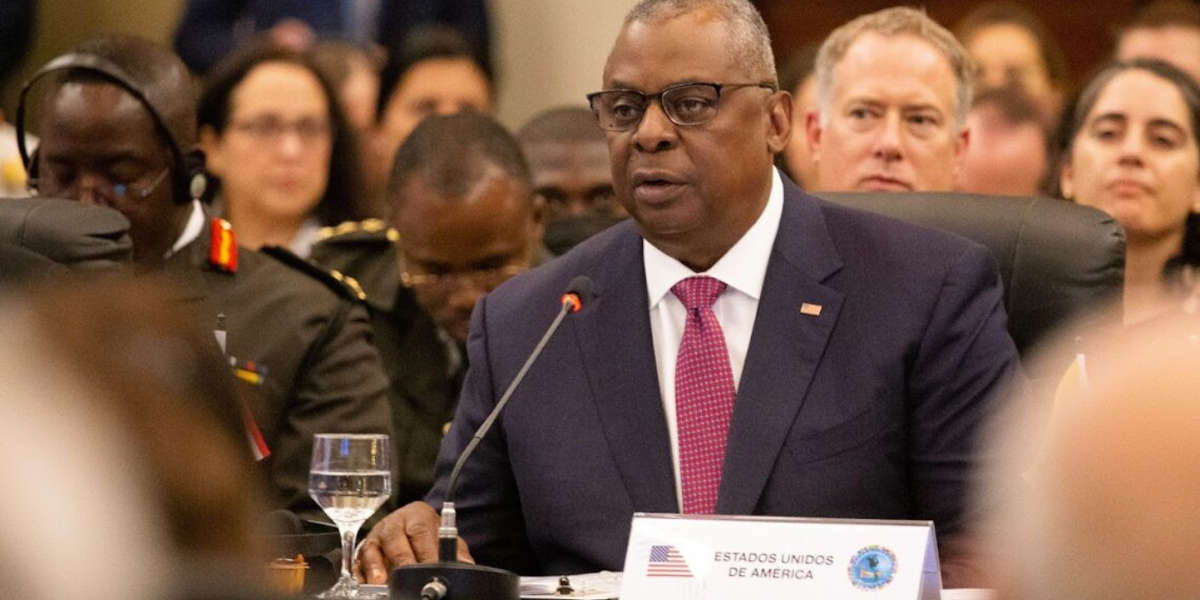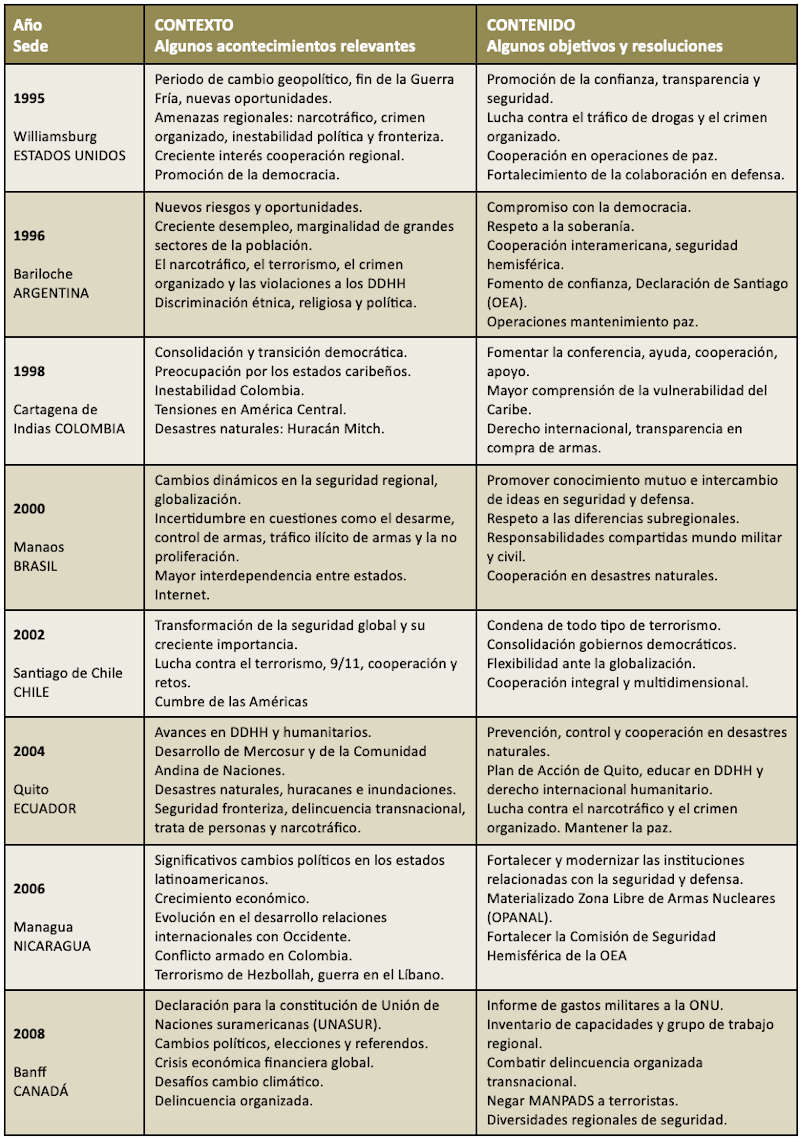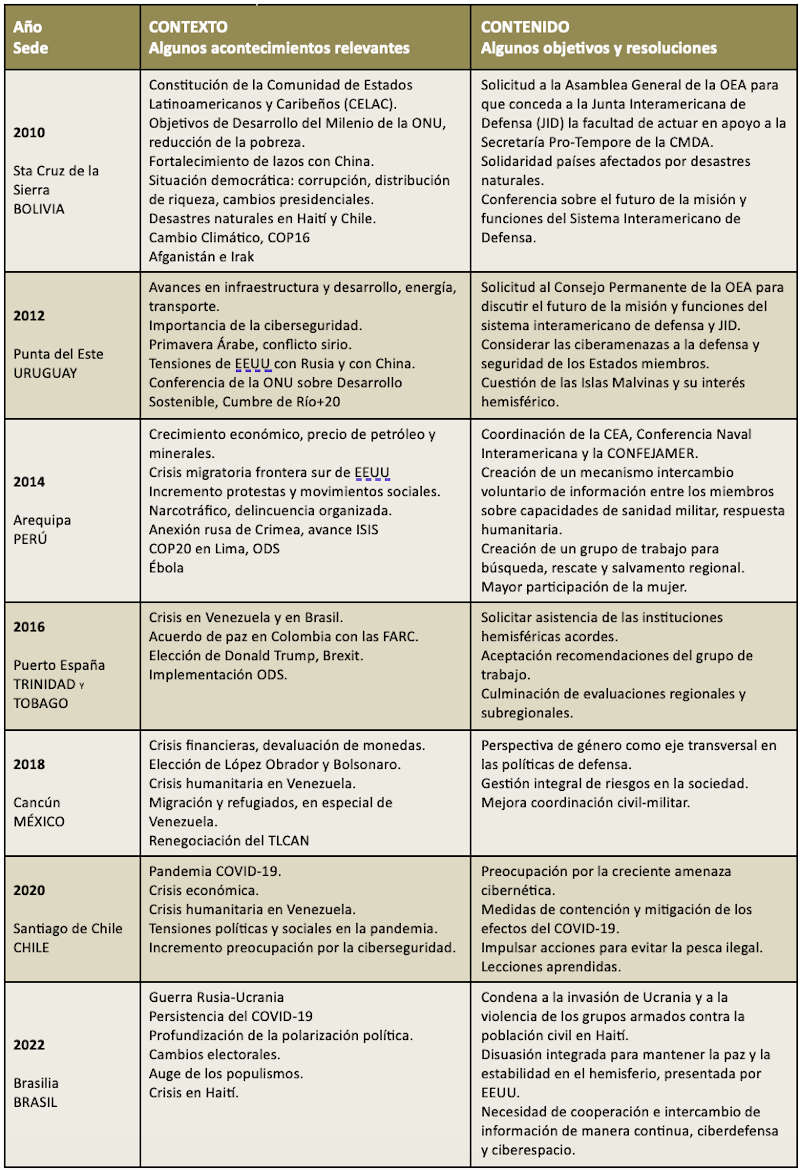In the picture
U.S. Secretary of Defense Lloyd J. Austin III at the 2022 WCDA [Gov. of Brazil].
report SRA 2024 / [PDF version]
° Milei's Argentina will host this year's 16th WCED, covering the period 2023-2024, in an environment more favorable to Washington than the Kirchnerist one.
° The lecture is confronted with the divergences of very different countries, the lack of implementation of possible agreements and the budgetary limitations of their armies.
° It is the only space in which the countries of the Americas have the opportunity to try to coordinate in the face of common challenges, such as organized crime and drug trafficking.
The lecture of Defense Ministers of the Americas (CMDA) brings together the heads of the military portfolios of the governments of the Western Hemisphere, as well as leaders and experts in the field of security and defense in the region. This forum arose almost thirty years ago, at a time of globalization and other supranational initiatives, such as the Summit of the Americas or a continental free trade agreement which did not materialize due to the ideological divergences that soon arose from the 'Bolivarianism'. In spite of the political polarization, the WADC has continued to function, thanks to the fact that it does not formulate binding resolutions and that, ultimately written request, it constitutes an opportunity for the exchange exchange of views on common problems.
The lecture was born precisely with the purpose to foster cooperation and the exchange of ideas among the nations of the Americas in matters related to security and defense. The status in Latin America presents obstacles and threats that require coordinated and collaborative action. The continent's states face a wide range of challenges that transcend national borders, from organized crime and drug trafficking to terrorism and natural disasters. The partnership among them is considered essential to strengthen defense capabilities and ensure the security of citizens.
Security and defense are important not only to protect borders and internal stability, but also to foster peace and prosperity in the region. A secure and stable environment, as the CMDA itself reminds us, is essential for economic growth, trade and investment, as well as for the promotion of democratic governance and human rights.
The WCEL was born in 1995. It is composed of the 35 member countries of the Organization of American States (OAS), which include all the countries of North America, Central America, South America and the Caribbean, although some of them do not attend the meetings, as is the case of Cuba. The dynamics of the lecture consists of the periodic meeting of these countries, every two years, to discuss and address common challenges in subject security and defense once every two years in a country elected by vote as host of the meeting.
The lecture covers a wide range of topics, including the fight against organized crime, drug trafficking, terrorism, cybersecurity, trade, humanitarian law, disaster management and the promotion of peace and stability in the region. In addition, cooperation is encouraged in areas such as military Education , interoperability of armed forces and the promotion of transparency and mutual trust.
It should be noted that these meetings provide an opportunity for the leaders of the countries to meet, discuss and strengthen diplomatic relations, and in some cases offer the possibility of agreeing on regional policies or adopting joint resolutions of common interest.
However, the dialogue at the meetings must face certain obstacles:
Divergence of views. The countries of the Americas are diverse in terms of their interests, policies and priorities, which can lead to disagreements and difficulties in reaching consensus on certain issues.
Lack of implementation. Although agreements may be reached, the effectiveness of agreed policies often depends on the willingness and capacity of countries to implement them.
Regional conflicts. Occasionally, these conferences may be hampered by political or territorial tensions and conflicts between some countries.
Budgetary constraints. The lack of financial resources in some countries may affect their ability to participate fully in security and defense initiatives; and finally, internal political changes in member states.



